
- “The sand stays in the sandbox.”
- “It’s time to wash our hands for snack.”

- “Walk.” (Rather than: “Don’t run.”)
- “Speak softly.” (Rather than: “Don’t shout.”)


- “When you grab the train from his hands, it makes Allan angry.” (Rather than: “You are mean when you grab the train like that from Allan.”)
- “Playdough stays in the playdough area.” (Rather than: “You naughty girl.”)

- “Thank you for helping Sam when she fell down. That’s called being caring.” (Rather than: “You good girl.”)
- “When we tidy up, it makes the area safe for everybody.” (Rather than: “You’re the best helper.”)




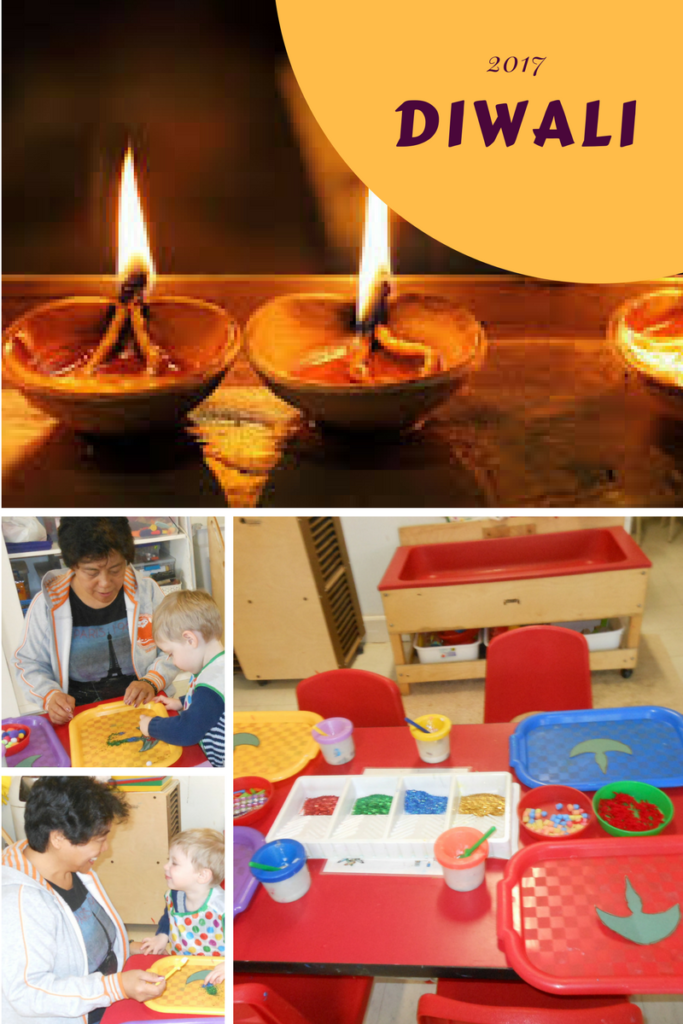 Observed in accordance with the lunar calendar, Diwali was celebrated on October 18th this year, and across Toronto, various community groups, businesses, schools and associations celebrated. Creating Together was no exception. With over 2000 people identifying as Hindu in the Parkdale-High Park area alone, our local Diwali celebrations fostered a sense of home and community for those who observe the holiday, while also increasing awareness among all of the children, parents and caregivers who observe other holidays. Our student Neetu planned and implemented a number of activities, including decorating paper diyas, and making sure families enjoyed food and sweets.
Observed in accordance with the lunar calendar, Diwali was celebrated on October 18th this year, and across Toronto, various community groups, businesses, schools and associations celebrated. Creating Together was no exception. With over 2000 people identifying as Hindu in the Parkdale-High Park area alone, our local Diwali celebrations fostered a sense of home and community for those who observe the holiday, while also increasing awareness among all of the children, parents and caregivers who observe other holidays. Our student Neetu planned and implemented a number of activities, including decorating paper diyas, and making sure families enjoyed food and sweets. Diversity activities teach young children to respect and celebrate the differences in all people, while also helping them understand who they are the context of race, ethnic group, culture, religion, geography, language and familial history. It helps them realize that we’re all humans, despite differences in how we look or dress, or what we eat or celebrate. Games and activities offer a fun way for young children to learn about differences and similarities among people and to introduce the concept of diversity. In so doing, we support them in their own identity formation and sense of belonging within the context of a diverse community.
Diversity activities teach young children to respect and celebrate the differences in all people, while also helping them understand who they are the context of race, ethnic group, culture, religion, geography, language and familial history. It helps them realize that we’re all humans, despite differences in how we look or dress, or what we eat or celebrate. Games and activities offer a fun way for young children to learn about differences and similarities among people and to introduce the concept of diversity. In so doing, we support them in their own identity formation and sense of belonging within the context of a diverse community.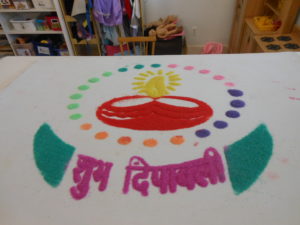


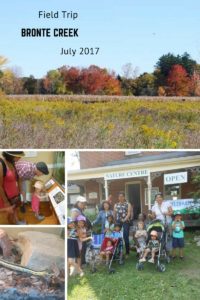 In July, Creating Together took it’s annual field trip to Bronte Creek, a Provincial Park in Oakville that offers trails, children’s farm, huge 1.8 acre pool, playground, and seasonal programming to help connect kids and families to nature. Children, parents and caregivers enjoyed a beautiful day of connection in nature, creating memories that will last a lifetime.
In July, Creating Together took it’s annual field trip to Bronte Creek, a Provincial Park in Oakville that offers trails, children’s farm, huge 1.8 acre pool, playground, and seasonal programming to help connect kids and families to nature. Children, parents and caregivers enjoyed a beautiful day of connection in nature, creating memories that will last a lifetime.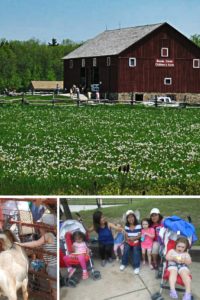

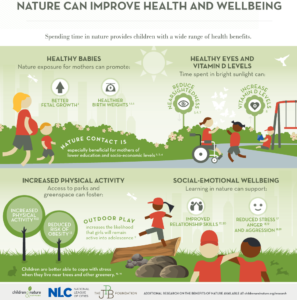
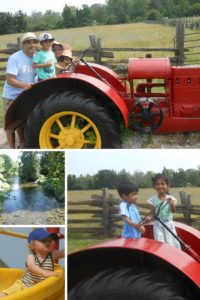 Here are a few other places in Toronto you might want to check out to foster more connection in nature:
Here are a few other places in Toronto you might want to check out to foster more connection in nature: